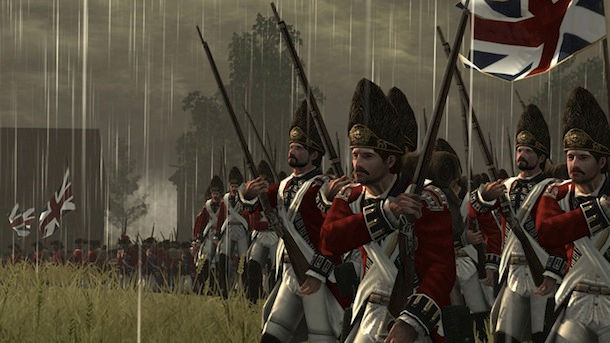Empire: Total War
- podulktm18
- Mar 31, 2022
- 2 min read
“Empire: Total War”, is a fantastic game to use
in the classroom not
only to teach about history, but to simply stimulate interest in the topic. Being set in a 200-year period, which player progress through as they play. The best way to describe the game is an abbreviated version of “Sid Meir’s: Civilization”. The shorter nature and real-time aspect of the game is far better for the classroom as well as some of the less experienced gamers in the classroom.

In “Civ” the nation building, and development aspect of the game is far more advanced and nuanced than “Empire”. “Empire” gives a player far more resources and alliances to begin the game with. This is a very positive element when looking at classroom applications. For one, not all students in a classroom may be as experienced in video games as others. While Civ does not have a lot of room for inexperienced strategy or turn-based game players, Empire certainly is more understandable and learnable. This is not to say that Empire is a more fun game or a better game in any way, simply that it is a little more user-friendly. The resources and alliances that player starts out with also make for a faster game-learning to gameplay to curriculum-learning time. If a teacher or professor is using the game for a lesson, the lack of having to teach students the game and is able to get students up and running on the game in a faster matter, their ability to apply the lesson to the game or vice versa is far better.

The speed of the game is also a benefactor when looking at the game in a classroom setting. The game runs much faster than Civ and the action of the game begins much faster. Without the nation development aspect of the game, player are thrust right into the 1700s amidst one of the most tumultuous times in world history, managing situations as they arise and even being able to take part in the action and battles.
The action of the game is also more entertaining in a way than other turn-based or strategy games. Being able to actively control aspects of a battle instead of just watching a command play out is far more engaging for players. Similarly, the resources and alliances which players start out with adds to this; instead of building a standing army and/or navy, the player the ability to add these elements to the game in minutes. This again, speeds up the run-time of the game and in turn speeds up the ability for a teacher or professor to apply a lesson to the game, as well as apply more specific elements of their lesson to the game.

Some of the downsides of the game include some historical inaccuracies. For one, the “Barbary States” and Pirates of course did not always act in unison and the game will. Not run an exact replica of 200 years’ worth of European and world history. This would limit the game’s playability in actuality, so to teach what happened in the 18th and 19th century relying solely on the game of course is not an option however as an added learning tool the game can serve just fine.
Image Sources

Comments